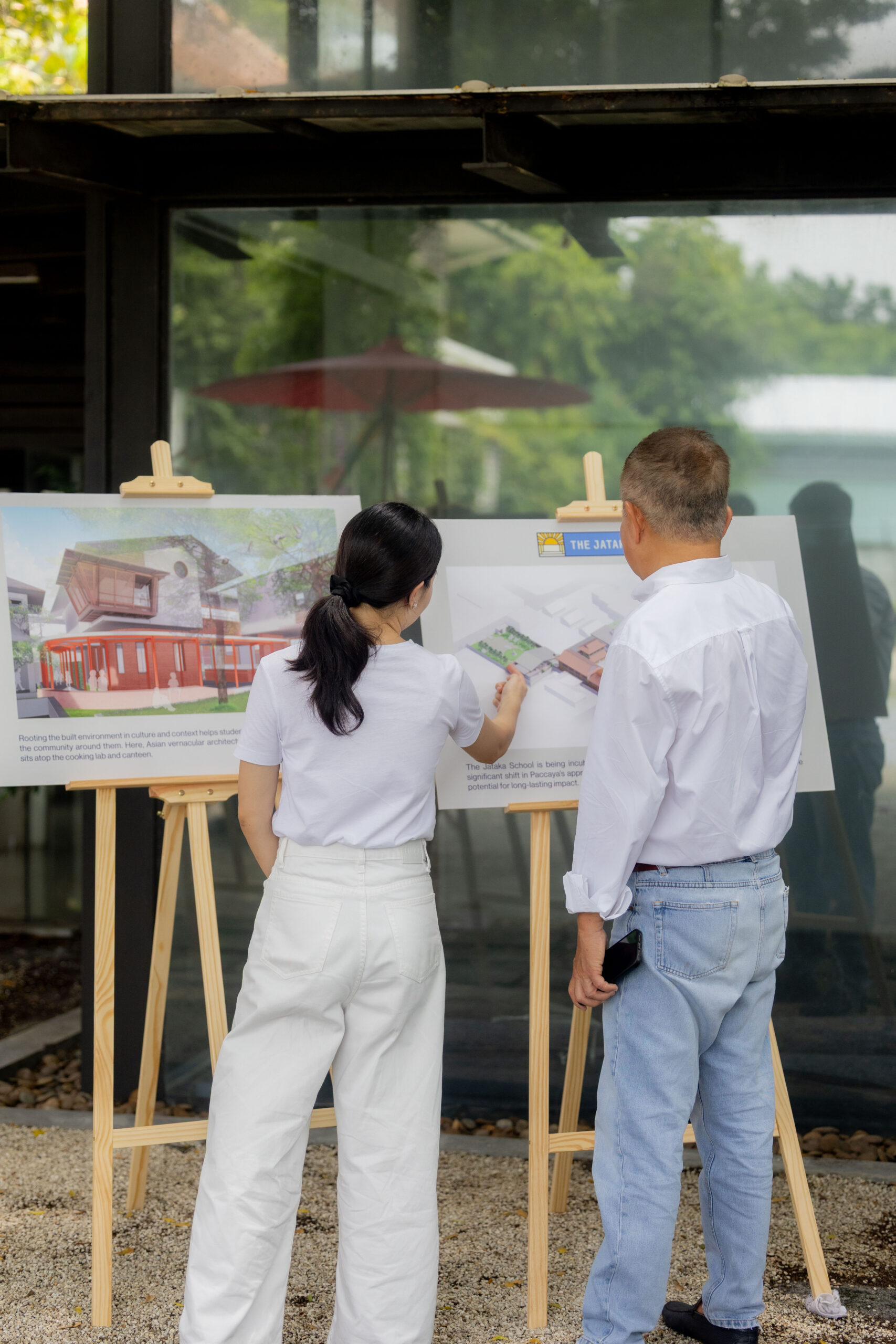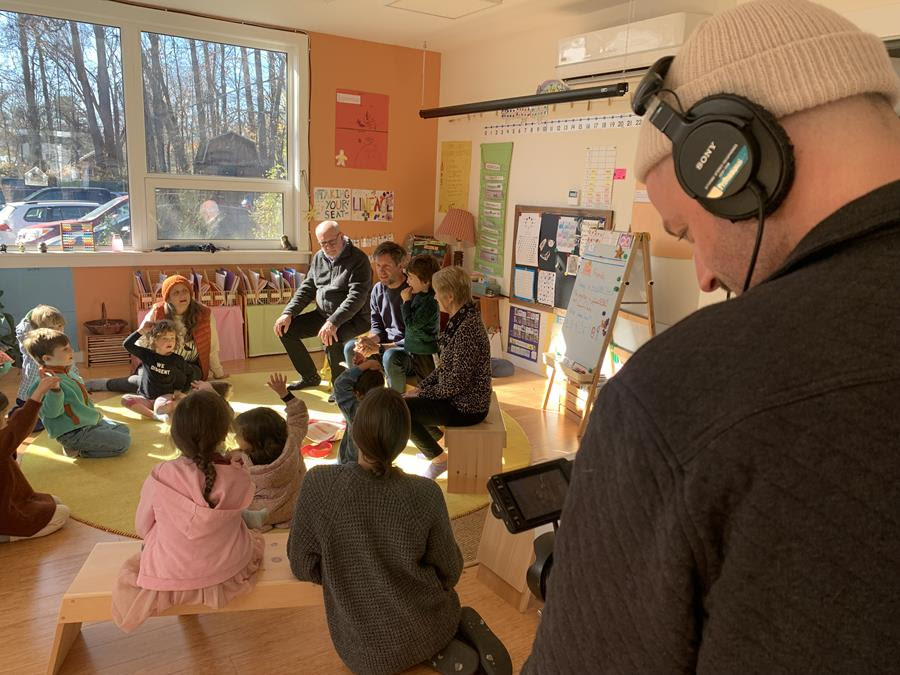
Bringing the Buddha’s Wisdom to Families
Introducing the Dharma to Parents at Middle Way School
Continuing our series “Bodhi Seeds,” we asked representatives from education programs and schools that Khyentse Foundation supports to respond to quotes by Dzongsar Khyentse Rinpoche about education. Our fourth issue features Middle Way School in the Hudson Valley, New York. Founded in 2017, Middle Way School is one of the first Buddhist preparatory schools for children in this area of the world. Drawing upon foundational Buddhist teachings and traditions as well as the latest research in child development, neuroscience, and technology, the school’s mission is to empower students to take their place in the modern world with intelligence, confidence, discipline, an understanding of interdependence, and a fundamental motivation of altruism.

Continuing our series “Bodhi Seeds,” we asked representatives from education programs and schools that Khyentse Foundation supports to respond to quotes by Dzongsar Khyentse Rinpoche about education. Our fourth issue features Middle Way School in the Hudson Valley, New York. Founded in 2017, Middle Way School is one of the first Buddhist preparatory schools for children in this area of the world. Drawing upon foundational Buddhist teachings and traditions as well as the latest research in child development, neuroscience, and technology, the school’s mission is to empower students to take their place in the modern world with intelligence, confidence, discipline, an understanding of interdependence, and a fundamental motivation of altruism.
“Because they’re sending their kids to a Buddhist school, I guess the parents would want to know what kind of values and beliefs [we have], how we look at ourselves and the world, and so on. … So—all compounded things are impermanent, everything is subject of time, how things appear is not how it is, things are all subject to dependent arising, you are your own boss.” — Dzongsar Khyentse Rinpoche
A key to introducing the dharma to parents who are new to a Buddhist school such as Middle Way School (MWS) is to present Buddhist values and practices in an accessible manner. Most of our students come to the school without a formal relationship with Buddhism. While families’ philosophical and spiritual backgrounds may overlap with the dharma, we ask only that they bring genuine curiosity and an open mind.
For school-age children engaging with Buddhist ideas and tools for the first time, a goal for family outreach is to share what their children are learning and to ensure that parents can learn in parallel. As well as exploring meditation and mindfulness techniques, we create a range of opportunities for parents to study and experience concepts that the children are encountering during the school day.

Each week, parents are invited to participate in a meditation group hosted by a rotation of experienced leaders from various lineages. In this hour parents get to learn as their children do: it is an experiential entry into sitting and walking meditation, noticing what arises in their bodies, minds, emotions, and perceptions. We gather on campus, where children can be heard in the midst of their morning lessons, singing, or playfully interacting with one another. This shared space allows students to encounter meditation practice naturally by glimpsing their parents’ engagement. It also allows parents to weave the awareness of the students’ experience into their panoramic intake of the present moment.
“As a Middle Way parent, I have truly enjoyed the chance to be a student right alongside my child. The weekly meditations have refreshed my relationship with timeless ideas. I really relate to the conversational approach and I appreciate the range of relationships to parenting. Each meditation leader has a unique way of distilling each idea into low-key simplicity. The school seems to attract gifted teachers who can weave big ideas into shiny moments of discovery—for eager learners of any age.” — MWS parent
In 2022, Middle Way Education (MWE) developed a framework known as the Five Wisdom Pathways to help MWS diversify our offerings and encourage parent participation. Parents are given options to engage in the modalities most comfortable for them or their learning styles.
The framework corresponds to the MWE Five Domains of Learning, which were originally developed by the founders of Eastern Sun Academy in Boulder, Colorado, and which have been refined and expanded at MWS.
The Five Wisdom Pathways
Vajra | Wisdom | Philosophy
Ratna | Enrichment | Humanities
Padma | Arts | Communication
Karma | Movement | Embodiment
Buddha | Space | Contemplation
With their range of experiences, interests, schedules, and learning styles, we try to meet parents at various points on the path.
Parents may choose to approach the dharma from any of these starting points, and many partake in the full spectrum of offerings. We have offered online meditations, movement practices, non-violent communication workshops, lectures on parenting within dharma principles, big-brush calligraphy sessions, visits to local Buddhist temples and monasteries, book clubs, podcast discussions, and more. Ultimately, we don’t ask that parents identify as Buddhists. We only ask that they engage for the sake of their child’s holistic learning.
“I came to Middle Way with little to no knowledge of Buddhism, but out of curiosity I began to sample some of the resources that Middle Way offers parents. The more I dig in, the more I understand the level of importance and depth of reimagining what education could or should be, and how enriching the Buddhist lens can be for my parenting. Not only that, it’s fun!” — MWS parent
Modern parents work hard, whether at outside jobs or as homemakers, or both. Society in the United States is fraught with stressors, competition, and anxiety. It is not our goal to demand more of their time or energy; our ambition is to provide easy encounters that resonate and inspire. By bridging school and home studies through joint discovery, parental study forms a vital part of the educational circle around the students.

At MWS, we believe that Buddhism spreads by magnetization, not by conversion or proselytizing. With each chance to encounter the dharma, we intersperse question-and-answer time. In this way, parents can inquire about their own experiences as well as their child’s experiences in the classroom. They begin to get an embodied or a felt sense of the dharma, which is the heart of Buddhist practice.
Because they’re sending their kids to a Buddhist school, I guess the parents would want to know what kind of values and beliefs [we have], how we look at ourselves and the world, and so on. As I’ve always said, … don’t start with “Don’t eat meat, chant mantra, buy a statue,” and definitely don’t start with ngöndro. So—all compounded things are impermanent, everything is subject of time, how things appear is not how it is, things are all subject to dependent arising, you are your own boss … and then you should also be brave enough to tell them that Buddhists don’t believe in God as a creator, … in Buddhism, morality is not in the driving seat, morality is a rider [and] the driver is wisdom. What is wisdom? Wisdom is knowing the truth. — Dzongsar Khyentse Rinpoche
While parents come from a variety of backgrounds—whether spiritual, agnostic, or atheist—the practice or study of the dharma does not contradict or negate other paths. Rather, all paths and perspectives can be included in whatever way is most sensible for the practitioners themselves. Even though Buddhism is non-theistic, we are open to others’ perspectives and beliefs. Of deeper importance are inquiry, tolerance, openness, and wonder, as well as cultivating Buddhist values of non-harming and investigation, helpfulness, wisdom, and compassion.
Essential to the Five Wisdom Pathways is selecting facilitators from different lineages—ideally of various races, genders, ages, shapes, and sizes. We aspire to disrupt patriarchy, sexism, and intolerance, in service to delivering the essence of the dharma teachings. Parents have the chance to see meditation modeled in many ways. They are encouraged to learn from differing styles and embodiments of teaching. We also encourage them to visit local centers: Zen, Vajrayana, Plum Village tradition, Jodo Shinshu, and more.
Our work has shown us that it’s important for beginners to know that meditation is really the heart of the path. Next is engaging in it, going beyond abstract theory. Becoming familiar with sitting, being, and resting the mind while awake, without having to do anything, can be revolutionary in the beginning.
Although we do discuss Buddhist concepts and theory at many of our gatherings, ideas alone risk skirting the heart and purpose of the dharma. The cultivation of awareness (for children we say noticing, observing, feeling …) engenders empathy, leading to wisdom and compassion. On the inquiry path, through resting, noticing, and listening we ideally become more open and curious.
This is why Buddhism can include other paths or ways of living. It need not be a dogma, but rather is a way of investigating and acting on the discoveries of interconnectedness, impermanence, and cause and effect, and deepening our interest in others and all of experience. It is a privilege and a joy to introduce people to the dharma and to meditation, including MWS staff, parents, and students. We bow in honor of this ongoing conversation and exploration.
Featured image above: Big-brush calligraphy with Barbara Bash (somatic and visual meditation). All photos courtesy Middle Way School.




